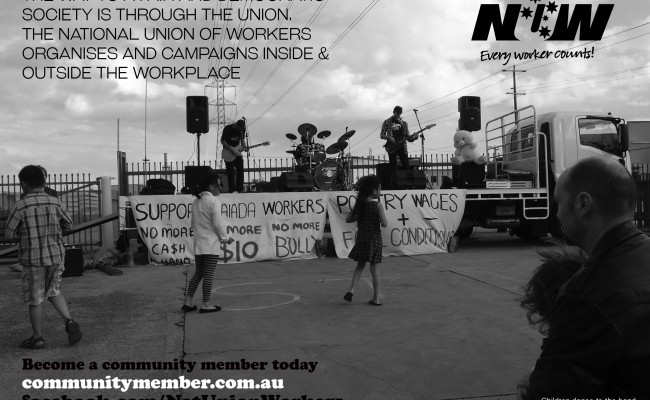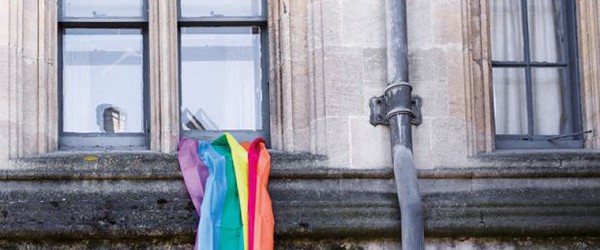In 1958, New Left thinker Raymond Williams published the influential essay, ‘Culture is Ordinary’, articulating through his own experience that, as the title suggests, culture is ordinary and is located in the everyday. Culture does not belong to any particular social class. Culture is not exclusionary. All over the world, workers and their families read and write poetry and literature. They visit art galleries and paint. They sing songs, play in bands and go to concerts.
This year the National Union of Workers partnered with Overland for a competition that encouraged workers and artists to write and draw about those everyday experiences, and to reflect on what it means to be a worker in contemporary Australia. Reading through the hundreds of entries, we discovered a great many voices saying that our workplaces, our communities and our country need to be fairer.
The Fair Australia project focuses on the expression of the everyday through writing and drawing. Accepting culture as ordinary also means accepting a version of democracy that means ordinary people should govern. This is our belief as a union – that power and culture comes from the working class. That culture is not something to be imposed on workers.
We do not want to see democracy reduced to what Williams labelled ‘a society run by experts for an abstraction called the public interest’, but as something that ordinary citizens, many of whom feel and often are disenfranchised, have a real stake in. It is on worksites, in suburbs and in towns across the country that the transforming energy of democracy is located.
For us, the Fair Australia Prize is one of a number of measures designed to give public space and voice to this energy. We see it as an important exercise in the organisation and creation of a social movement that can recapture the transformative power of a living democracy for all citizens.
It’s worth acknowledging that the idea of pairing a literary, artistic and intellectual prize with a trade union seems to sit unnaturally for some in modern Australia; that this is neither the work unions do nor the audience journals such as Overland really engage with.
But this perception is untrue, and has more to do with the particular ways democracy and power currently function – because everyone should have access to culture, to enjoy it and to make it.
If the only people we see actively engaged in discussions about policy and politics are the ‘experts’ or technocrats then anyone who is not middle-class and degree-qualified is automatically removed from the conversation.
NUW members have a range of interests, experiences, talents, ideas, aspirations and expertise. We know that for democracy to function as something capable of transforming our country into something richer, we need to listen to all our citizens.
With current arts funding provisions limited, and with Federal Arts Minister George Brandis’s personal taste the measure of success or failure when seeking grants for artistic work, it is clear that the government is removing culture from the hands of ordinary people.
But we do not want to have culture handed down to us from on high. We want people to engage, challenge, create and transform culture. We must remember that culture is ordinary, and part of our everyday.
This special issue of Overland, the NUW Fair Australia Prize and Melbourne Writer’s Festival event also has this objective: to encourage a conversation about transformation and a fairer country, one that includes ordinary people.
A hearty congratulations to the winners of the inaugural Fair Australia Prize.



